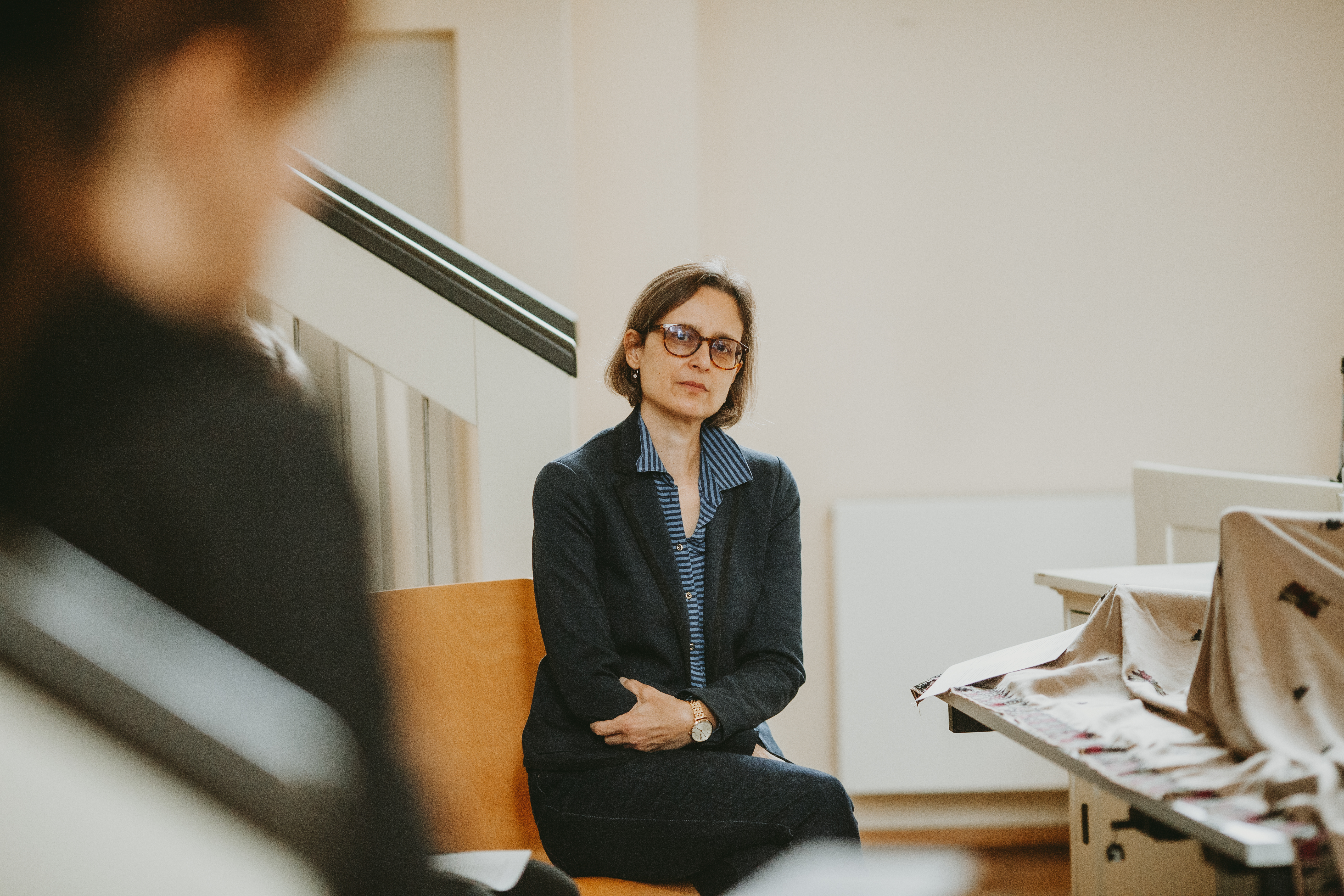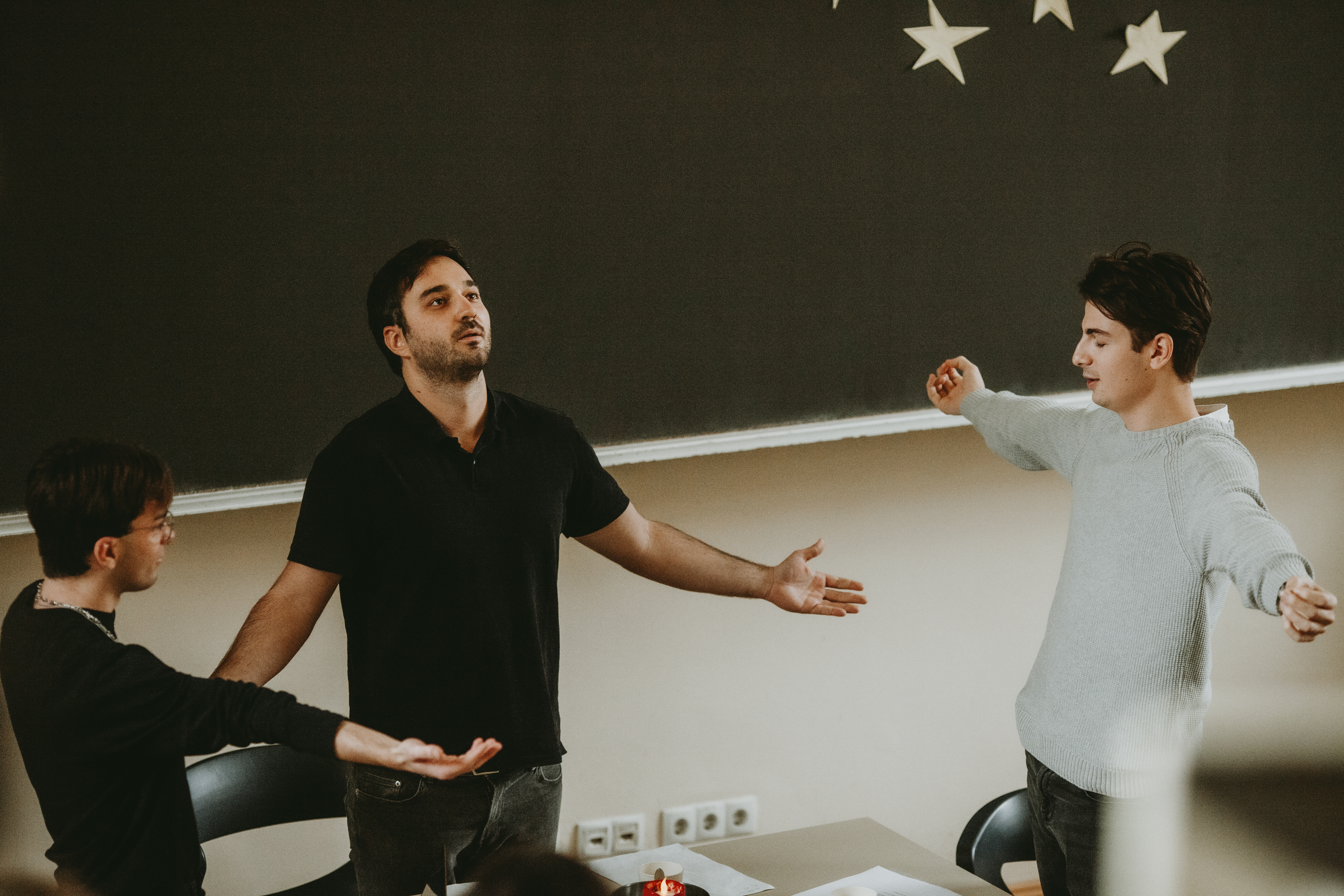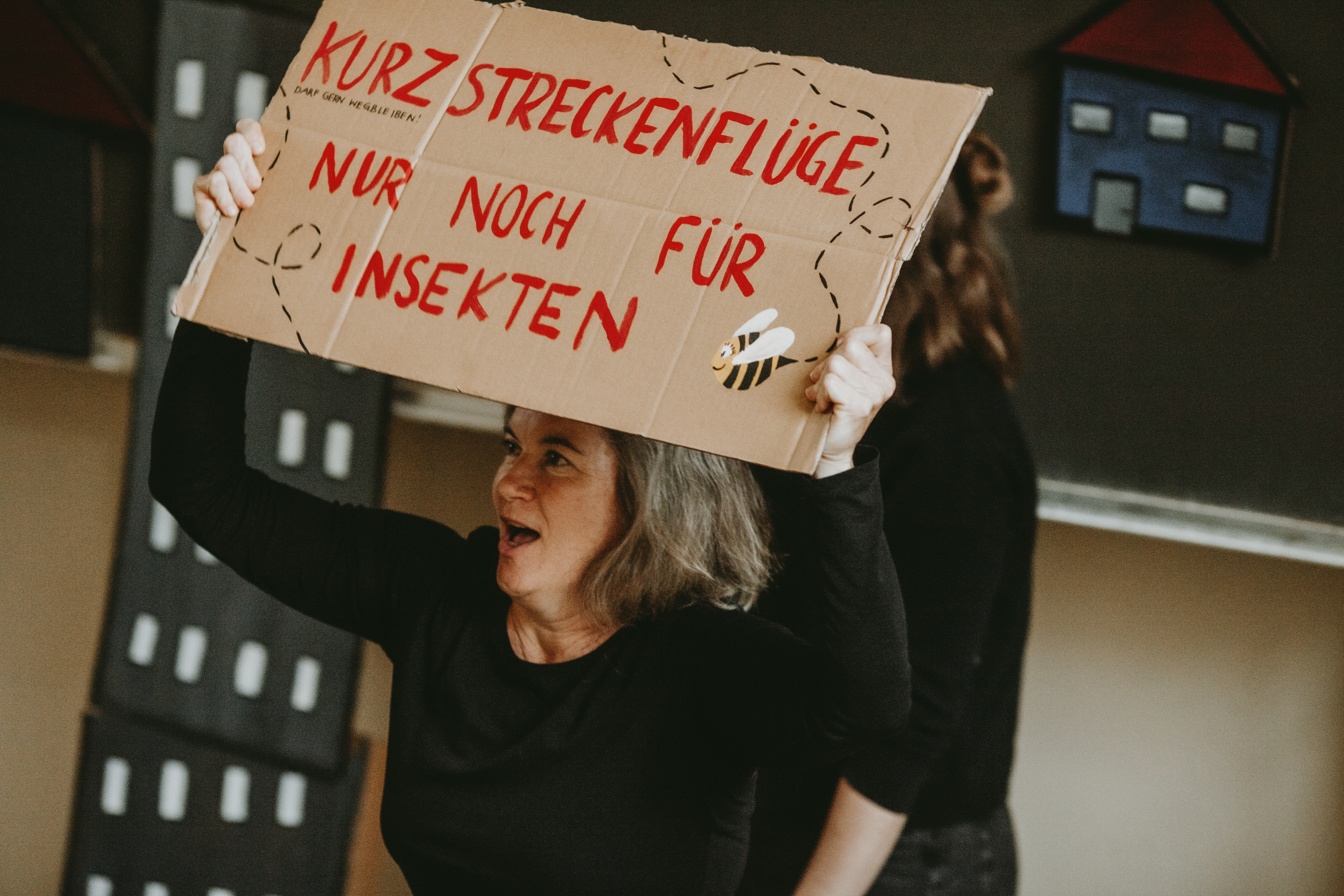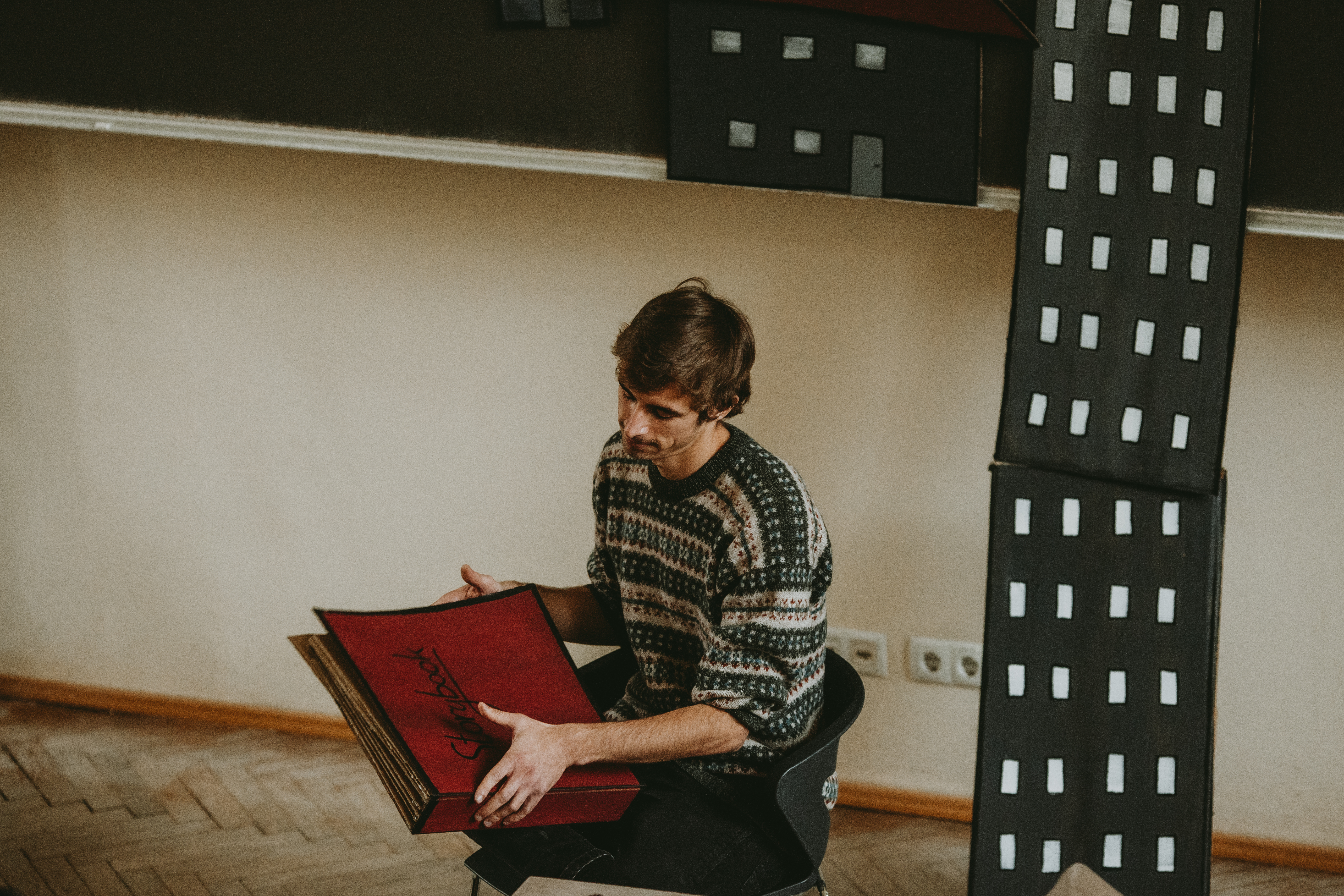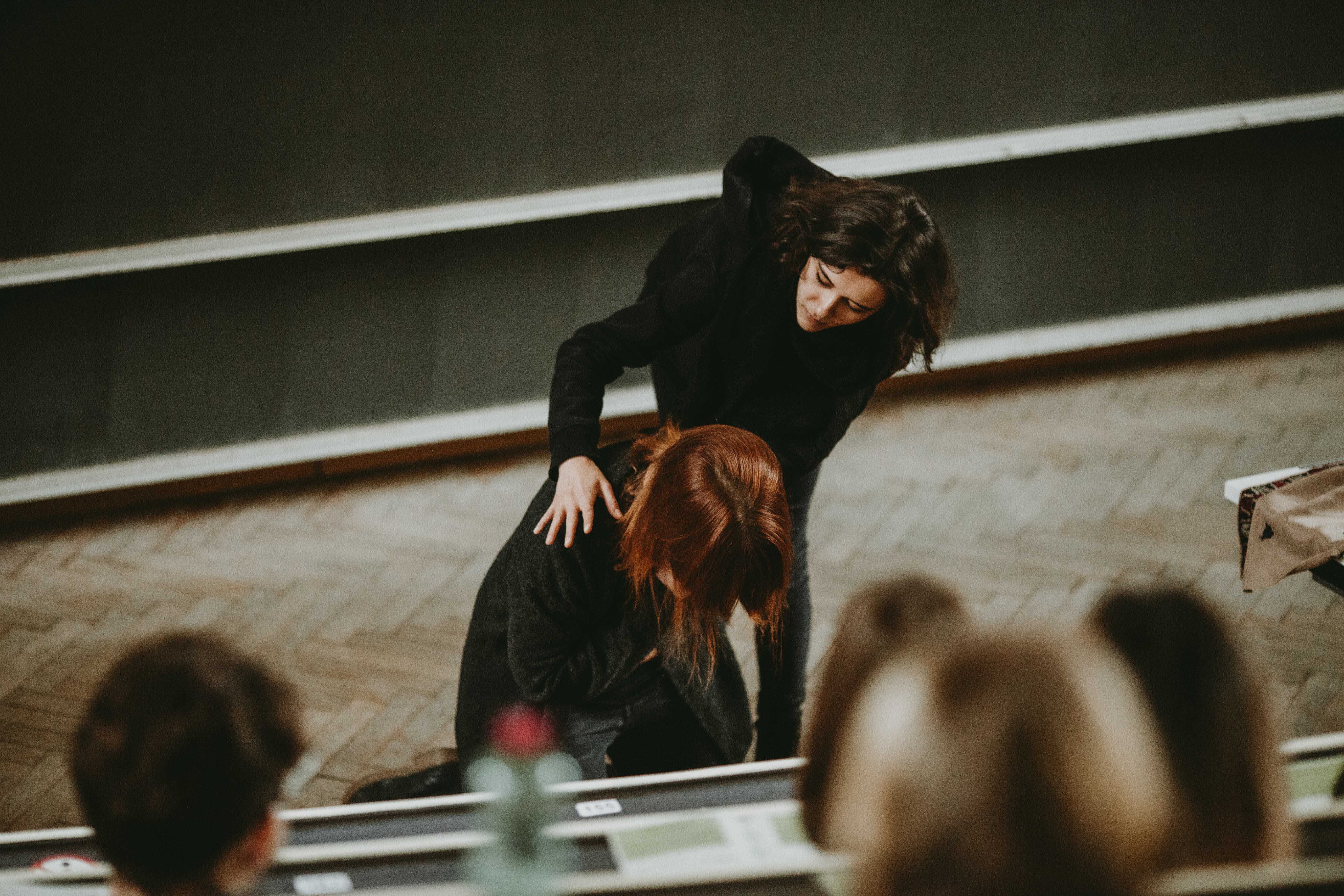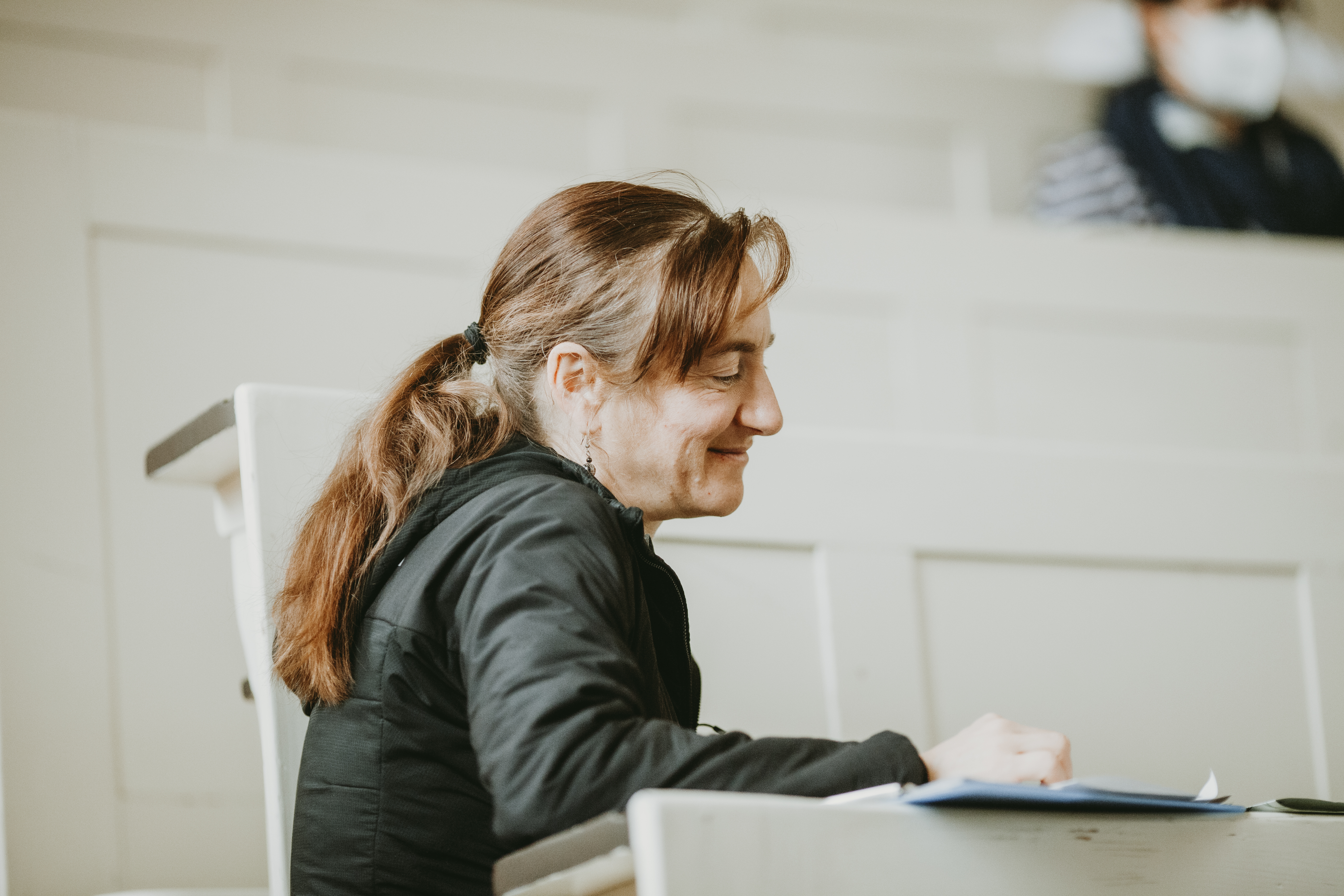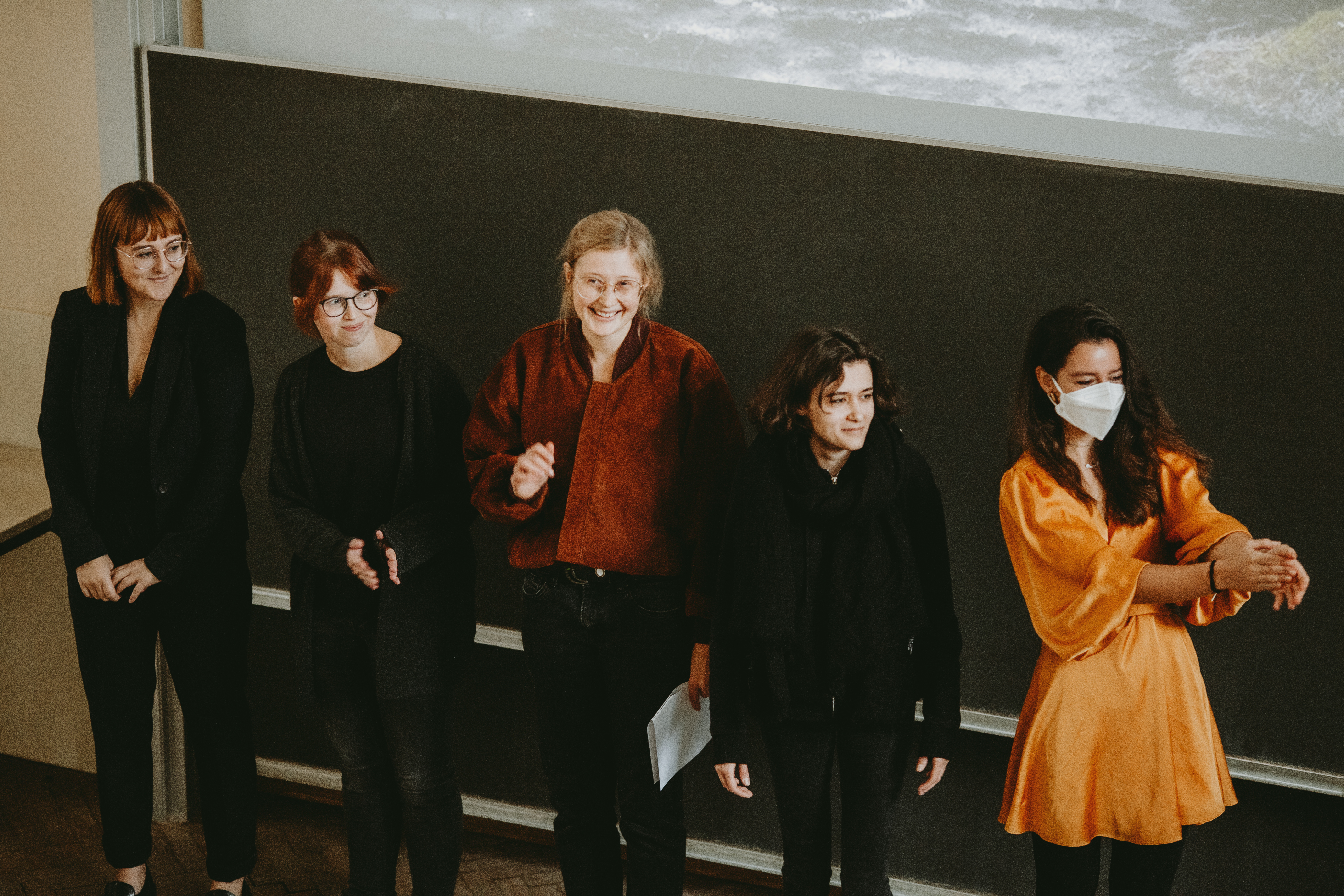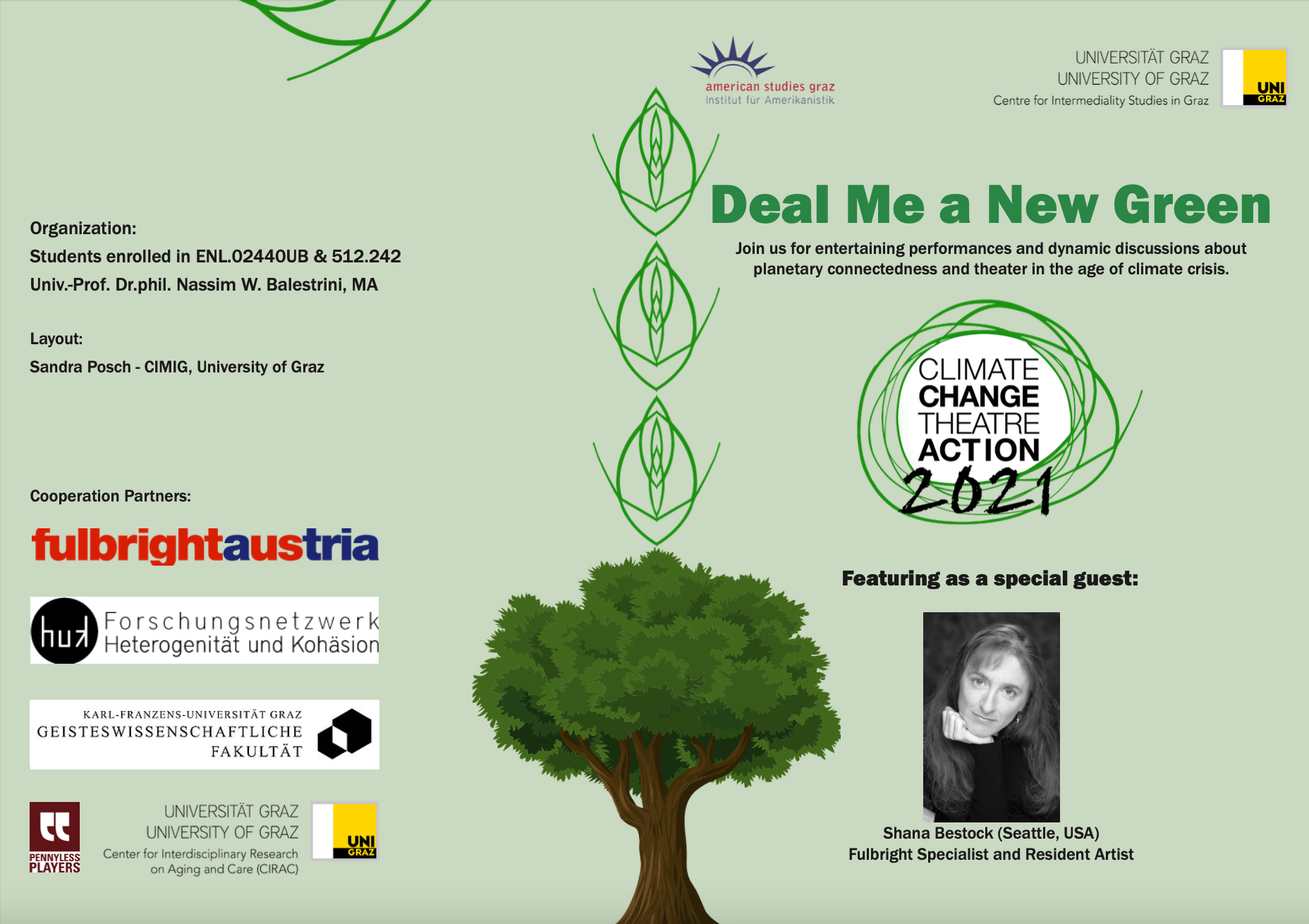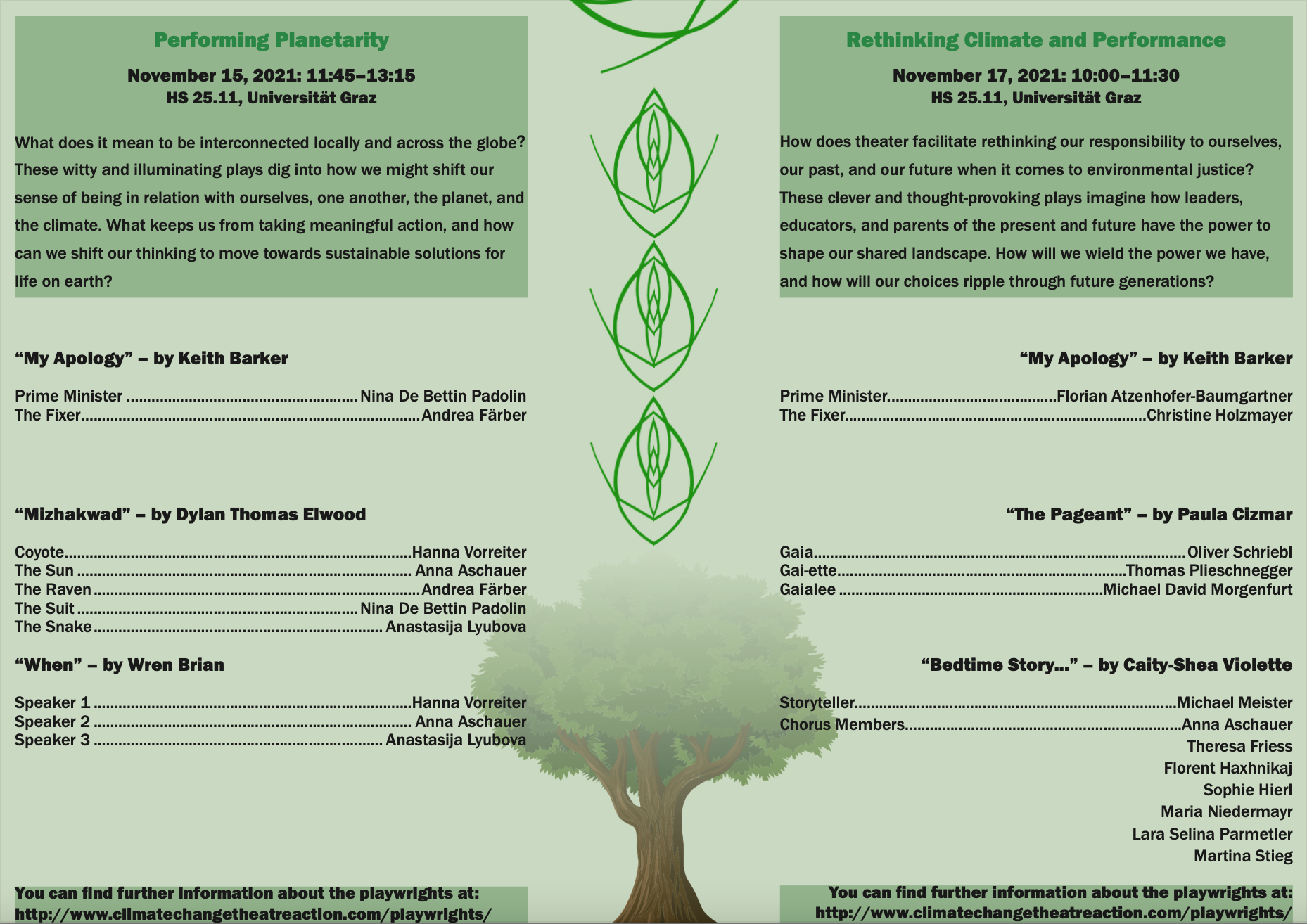Back in the summer of 2020, playwright and translator Chantal Bilodeau—one of the founders of Climate Change Theatre Action (www.climatechangetheatreaction.com)—wrote an email to theater artist Shana Bestock in Seattle, who had just been accepted into the Fulbright Specialist roster, and to University of Graz professor Nassim Balestrini, who has been researching climate change drama. Chantal’s hunch that Shana and Nassim would be interested in collaborating in matters related to dramatic performance and climate change proved true. After months of email correspondence and multiple video conferences, and after securing the required financial support of the Division for Arts and Humanities at the University of Graz, Nassim Balestrini submitted an application to Fulbright in early 2021. With the application’s approval in July 2021, preparations for Shana Bestock’s six-week visit in October and November were launched.
Geared towards curriculum development, the project focused on integrating arts education into the literary studies classroom. Students in two seminars thus had the opportunity to select a set of three plays from this year’s CCTA corpus of five- to ten-minute shows. They then developed their own approach and eventually performed them for Prof. Ulla Kriebernegg and the participants in her seminar on Aging Studies and climate change literature.
Both on 15 and 17 November 2021, the student performances went very well, as did the subsequent panel discussion and Q&A with the audience. During the post-performance discussion, the student performers of the Monday seminar reflected on the experience of studying theories of planetarity and their relation to understanding cultural products about climate change from two perspectives: academic studies and practical theater work. They emphasized that the experience of acting in and staging the CCTA plays gave them an astonishingly different perspective on dramatic texts and that they realized the power of developing a performance within a group. They very much enjoyed getting a glimpse at how theater ‘works.’ All of them loved learning from Shana Bestock!
The group that performed two days later was larger and worked extensively with props. Audience members who reflected on experiencing both shows commented positively about the powerful impact of some of these visual elements. Another exciting connection between both events was that in both groups several students observed that they were particularly amazed by the experience of being part of a group, of cohesion as a crucial factor in creative work. They also felt that the creative work allowed them to express ideas about linking climate change discussions and the arts in ways that their scholarly work does not.
As a follow-up, the participants of Prof. Balestrini’s seminars submitted in-depth written reflections on their experience and on their perspectives on arts integration in academic study. Before the semester will end, we will gather in a video conference with Shana Bestock in order to discuss these insights and ideas, and to think about how the project might continue in the future.

